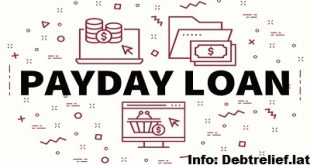There are many sorts of home loan accessible in the present market and knowing which one you want to apply for is fundamental if you have any desire to get the right arrangement for you.
However a wide range of home loan capability along these lines, factors like financing costs, reimbursement techniques, and charges can contrast between items. Along these lines, finding the best arrangement isn’t just an instance of picking the most minimal rate, however more about tracking down the right home loan to suit what is going on.
To assist you with finding a good pace, we’ve assembled this manual for make sense of various sorts of home loan accessible in the UK, as well as examining their upsides and downsides. We’ll, first and foremost, take a gander at the distinctions among reimbursement and interest-just home loans, the two fundamental prevalent sorts you want to be aware of. We’ll then move onto variable and fixed-rate contracts, which are the two sorts of reimbursement contract. We’ll likewise cover:
- Purchase to-let contracts
- Covered rate contracts
- Markdown contracts
- Adaptable home loans
- Underwriter contracts
- Help to Purchase contracts
- Joint home loans
- Counterbalance contracts
- Standard variable rate contracts
- Tracker contracts
- 95% home loans

Interest-just Home Loan versus Reimbursement Contract
Most sorts of home loan fall into the class of a reimbursement contract, aside from interest-just home loans. Underneath we’ve investigated what every one is and the way that they vary.
What is a Reimbursement contract?
A reimbursement contract is a kind of home loan where you reimburse a portion of the capital sum you’ve acquired, as well as probably the interest on the credit. The point is to repay the first advance sum in addition to intrigue over the term concurred when you take out the home loan, permitting you to develop value over the long run and ultimately own your home out and out.
In the event that you move during the term of the home loan, you have the choice to reimburse the first credit and afterward take out another home loan, or move your ongoing arrangement to your new home — a cycle known as porting your home loan.
Pretty much every kind of home loan is a reimbursement contract. The main exemption is an interest-just home loan, which we’ll cover straightaway.
Who is this kind of home loan for?
A homebuyer who needs to develop value in their home and own the property toward the finish of the reimbursement time frame.
What is an Interest-just Home Loan?
An interest-just home loan expects you to pay the interest on the home loan sum every month, except no reimbursement towards the capital you’ve acquired. All things considered, the advance sum is taken care of toward the finish of the home loan time frame, so you should ensure that you possess the ability to reimburse the entire obligation. This varies from a reimbursement credit, where the sum is repaid steadily close by the interest.
The upside of an interest-just home loan is that your month to month reimbursements will be a lot of lower than some other home loan item. In any case, you should ensure that you’ve aggregated an adequate number of assets to reimburse toward the finish of the term, or you might need to offer the property to cover what you owe. Furthermore, as you’ll be taking care of interest overall credit, as opposed to a diminishing sum, an interest-just arrangement will cost in excess of a reimbursement contract over the long haul.
Who is this kind of home loan for? A purchaser who needs to profit from lower installments every month except is certain that they will have an adequate number of assets to take care of the home loan when it is expected.
Variable-Rate Contract versus Fixed-rate Contract
Variable-rate contracts and fixed-rate contracts are the two kinds of reimbursement contract, yet they contrast in how the financing cost is determined. How about we take a gander at the fundamental distinctions between the two and who might profit from every item.
What is a fixed-Rate Contract?
With a fixed-rate contract, the loan cost is fixed briefly and will not be impacted by Bank of Britain base rate increases or vacillations on the lookout. This decent financing cost is frequently alluded to as the starting rate. Whenever you’ve taken out a fixed-rate contract, you will be gotten into the basic rate for a set timeframe, and in the event that you pass on you’ll be liable to leave expenses.
Commonly, the decent rate time frame (otherwise called the underlying rate period) is the initial two, three, or five years of the term. During this time, you will know precisely the amount you will be paying every month, and this won’t change until the decent period has lapsed, making it more straightforward to spending plan. At the point when you take out a premium just home loan, you will successfully be securing to your greatest advantage rate, which can be exceptionally convenient assuming you imagine that the Bank of Britain’s base rate will increment soon.
The sureness of fixed-rate contracts makes them exceptionally engaging for first-time purchasers who are seeking spending plan for the initial not many years in their new home or mortgage holders who need to be sure the thing they’re repaying every month.
The drawback is, whenever you’re gotten into an underlying term, you’ll find it hard to change again because of a heavy punishment that most loan specialists will connect to their items. Likewise, you will not have the option to profit from falls in loan costs would it be a good idea for them they happen during your term, however you’ll likewise be shielded from any climbs in the rates.
Whenever you’ve arrived at the finish of the fixed-rate time frame, you’ll be changed to your loan specialist’s standard variable rate, which will probably be higher. Right now, many individuals decide to remortgage to change to a more ideal arrangement — you can figure out more about this cycle and how it could help you in our remortgaging guide.
Who is this sort of home loan for? A fixed-rate contract is an extraordinary decision for somebody searching for security and the capacity to financial plan toward the start of their home loan, for example, a first-time purchaser precisely. They’re likewise reasonable for property holders who need to secure in a decent home loan rate, particularly on the off chance that they accept the base rate is because of ascend eventually.
What is a Variable Rate contract?
A variable rate contract is an item wherein the loan fee can move whenever, either to a sequential sum. Not at all like a fixed-rate contract, there is no period where the rate is secured, and the amount you pay every month is dependent on future developments. This sort of home loan is impacted by the Bank of Britain’s base financing cost, as well as different variables.
Additionally, there is more than one kind of factor rate home loan to consider. For every one, the loan cost you pay is determined somewhat in an unexpected way, giving every one benefits and hindrances relying upon what your necessities are. Beneath we’ve recorded the fundamental sorts of variable rate contracts: standard variable rate, tracker, rebate, and covered rate.

What is a Standard Variable Rate Contract?
A standard variable rate (SVR) contract has a loan cost that is set by the moneylender. This rate isn’t straightforwardly connected to the Bank of Britain, however in most of cases it is the essential impact on whether it increments or diminishes.
A loan specialist can increment or decline the home loan rate that you are paying on a month to month premise, so you could wind up paying pretty much relying upon their choice. This makes it challenging to spending plan for what’s in store. Then again, being on a SVR permits you to have more opportunity: you can overpay or leave your home loan unafraid of high punishments for doing as such.
SVR is likewise the rate that a bank will move you to once your fixed-rate bargain has lapsed, and that implies you will normally wind up paying a higher loan fee in the event that you don’t remortgage in time. Look at our remortgaging counsel administration assuming that you really want direction.
Who is this kind of home loan for? Property holders who believe the opportunity should switch contract items whenever or on the other hand in the event that you can see yourself moving home from here on out.
What is a Tracker Contract?
A tracker contract is a sort of home loan bargain where the financing cost is identical to the Bank of Britain base financing cost, in addition to a couple of rate focuses set by your moneylender. For instance, on the off chance that the base rate is 0.5%, you could pay that in addition to 3% for a pace of 3.5%. This implies that when the base rate falls, your home loan rate will ‘follow’ it downwards and you will save money. Be that as it may, the equivalent happens when the base rate increases, so you could wind up paying a higher sum every month.
Most tracker contracts are presented with early on bargains, where you’ll be on the tracker rate for a set time of years, however there are some ‘lifetime’ bargains that keep going for the length. Banks will generally move you to their SVR once the initial arrangement is done. What’s more, a few banks will set a base rate for you to pay, regardless of how much the base rate drops.
Who is this kind of home loan for? Those that are sure that the base rate is set to fall yet can easily pay more assuming the rate increments again after some time.
What is a Rebate Contract?
A rebate contract sees you paying a diminished rendition of your bank’s standard variable rate. How much markdown is fixed, and the decrease is applied whether the SVR is expanded or diminished by the loan specialist. For example, in the event that the SVR was set at 4.5% and your arrangement applied a proper 1.5% rebate, you would just compensation a 3% home loan rate. Assuming that the moneylender diminished the SVR to 4%, your rate would be decreased to 2.5%.
Most of markdown contracts are just accessible for an early on term (similar as a tracker contract), after which you’ll be changed to the bank’s SVR. Many arrangements are likewise ventured, so you will gain admittance to the best rebate for a set term, prior to changing to a lesser markdown until the end of the basic time frame. Furthermore, some rebate contracts are covered with the goal that there is a rate they can’t fall beneath or increment above.
Who is this kind of home loan for? Individuals, for example, first-time purchasers, searching for a less expensive rate during an early on period, who can oblige paying more should the SVR increment.


